Mental health is a complex and multifaceted issue that affects millions of people around the world. Fortunately, advances in technology have brought about a new generation of mental health tools powered by artificial intelligence (AI). From chatbots that offer virtual support to mood trackers that help individuals monitor their mental well-being, these tools are changing the way we approach mental health care.
In this blog, we'll explore some of the best AI-powered tools for mental health, how they work, and their potential benefits for mental health professionals and individuals alike. Whether you're struggling with mental health issues or you're a mental health professional looking for innovative ways to support your patients, these tools can offer new opportunities for personalized care and improved outcomes.
Woebot

Woebot is a conversational AI tool designed to help people manage their mental health. Using natural language processing and cognitive-behavioral therapy techniques, Woebot engages in a conversation with the user, offering personalized support and guidance for a range of mental health concerns, such as anxiety, depression, stress, and insomnia. What makes Woebot unique is its friendly and accessible personality, which fosters a sense of trust and comfort for the user. Woebot is available 24/7, which means that users can access it anytime they need, without having to wait for appointments or worry about scheduling conflicts. Moreover, Woebot is highly customizable, as it adapts to the user's needs and preferences, delivering personalized interventions and feedback based on the user's input.
Pros
Cons
Overall Rank
Talkspace
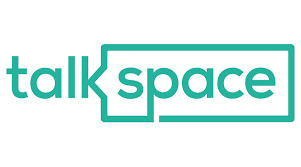
Talkspace is a telemedicine company that offers online therapy through its app, connecting clients to licensed therapists. One of the features that makes Talkspace stand out is its AI tool, which uses natural language processing and machine learning to help therapists provide better care. The AI tool analyzes client messages and identifies patterns in language and behavior, alerting therapists to potential issues or areas of focus. It also offers suggestions for how therapists can respond to clients, based on successful interactions in the past. This helps therapists personalize their treatment plans and improve outcomes for clients, while also making their work more efficient and effective.
Pros
Cons
Overall Rank
Moodfit

Moodfit is an AI-powered tool designed to help users manage their mental health and well-being. Using a combination of cognitive-behavioral therapy (CBT) and positive psychology techniques, Moodfit offers personalized insights and guidance to users based on their unique needs and goals. Through its intuitive interface, users can track their mood and energy levels, set daily and weekly goals, and access a range of activities and exercises designed to improve their mental and emotional well-being. Moodfit also offers a community aspect, allowing users to connect with others for support and encouragement. Overall, Moodfit provides a valuable tool for those looking to take a more proactive approach to managing their mental health.
Pros
Cons
Overall Rank
Wysa
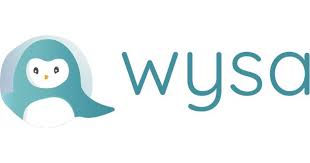
Wysa is an AI-powered mental health app that provides emotional support and self-care tools to its users. The app uses a chatbot interface to offer evidence-based techniques from cognitive behavioral therapy, dialectical behavior therapy, and mindfulness-based stress reduction to help users manage stress, anxiety, and depression. It also features a journaling tool that encourages users to track their mood, thoughts, and feelings. Wysa uses machine learning algorithms to personalize its approach based on the user's interactions and responses. It can also connect users to licensed mental health professionals for more severe cases. With its user-friendly interface, anonymity, and 24/7 availability, Wysa has become a popular tool for those seeking support and guidance for their mental well-being.
Pros
Cons
Overall Rank
Ginger

Ginger is an AI tool that offers various features to improve writing skills. It can be used to check grammar mistakes, spelling errors, and punctuation errors. One of the unique features of Ginger is its ability to provide suggestions for rephrasing sentences to improve their clarity and conciseness. Additionally, Ginger offers a personalized learning experience by tracking common mistakes and providing tips for improvement. It can also be integrated into various writing platforms, including Microsoft Office and Google Docs, making it easily accessible for users.
Pros
Cons
Overall Rank
Happify
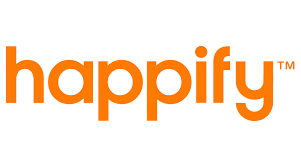
Happify is an AI-powered tool that aims to promote mental wellness and happiness. It offers a range of activities and exercises based on positive psychology, cognitive-behavioral therapy, and mindfulness techniques to help users reduce stress, anxiety, and negative thoughts. The app personalizes the content and tracks progress to provide personalized recommendations for users. Happify offers a variety of features, including daily check-ins, guided meditations, and gratitude journals, that can help users build resilience, enhance their emotional intelligence, and cultivate positive habits.
Pros
Cons
Overall Rank
MindShift
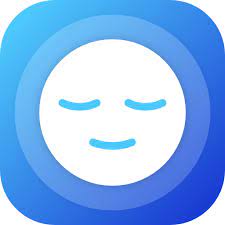
MindShift is an AI tool designed to help individuals manage their mental health by identifying and challenging negative thought patterns. The tool works by using natural language processing to analyze a person's self-talk and provide insights and strategies to shift towards a more positive mindset. Users can track their progress over time and set goals for improving their mental wellbeing. MindShift is particularly useful for those struggling with anxiety and depression, as it can provide a new perspective and help individuals break out of negative thought cycles.
Pros
Cons
Overall Rank
Youper
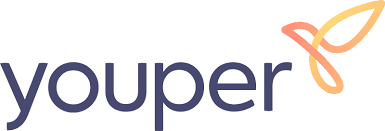
Youper is an AI-powered mental health tool designed to help individuals manage their emotional well-being. Its friendly chatbot interface engages users in conversational therapy, providing customized insights and guidance based on individual needs. Through machine learning and natural language processing, Youper analyzes user responses and provides personalized insights, mindfulness exercises, and mood tracking. Youper also uses cognitive-behavioral therapy (CBT) techniques to help users challenge and modify negative thought patterns. With features such as emotion tracking, personalized insights, and mindfulness exercises, Youper aims to improve mental health and well-being.
Pros
Cons
Overall Rank
Headspace

Headspace is an AI tool that provides guided meditation and mindfulness sessions to help users reduce stress and improve their overall well-being. The app offers a variety of meditation exercises, including breathing techniques, visualization exercises, and body scans. One unique feature of Headspace is its personalized approach, which uses data from user feedback to tailor sessions to individual needs and goals. The app also includes a sleep section with guided meditations and soundscapes to help users fall asleep and stay asleep. Additionally, Headspace offers a range of mindfulness exercises designed for everyday activities, such as cooking and walking, to help users incorporate mindfulness into their daily routine. Overall, Headspace is a great tool for those looking to improve their mental health and incorporate mindfulness into their daily routine.
Pros
Cons
Overall Rank
BetterHelp

BetterHelp is an online platform that offers mental health counseling services to individuals through a mobile application or web browser. One of its features is an AI tool that analyzes user data to provide personalized therapy recommendations. The AI tool also suggests activities that users can do outside of therapy sessions to improve their mental well-being, such as mindfulness exercises or journaling prompts. The tool uses natural language processing to analyze the user's messages to their counselor and provides them with insights about their communication style, such as their tone or the frequency of certain words. The BetterHelp AI tool is a useful feature for individuals who may not know how to track their progress or are looking for additional support outside of their therapy sessions.
Pros
Cons
Overall Rank
Sanvello

Sanvello is an AI-powered tool designed to provide personalized mental health support to users. The app offers a range of features, including guided meditations, cognitive behavioral therapy (CBT) exercises, mood tracking, and peer support. Sanvello's AI technology analyzes user data to deliver personalized recommendations and track progress over time. The app's user-friendly interface and 24/7 availability make it a convenient and accessible tool for anyone looking to improve their mental health.
Pros
Cons
Overall Rank
Calm
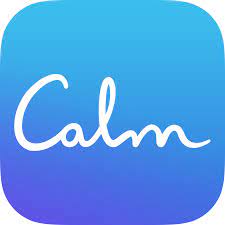
Calm AI is a tool designed to help individuals manage their stress and anxiety levels. It is a unique and innovative solution that uses artificial intelligence and natural language processing to offer personalized support and guidance to users. The tool provides a range of mindfulness and meditation exercises, breathing techniques, and relaxation techniques that help individuals reduce stress and anxiety. Moreover, the app also offers daily reminders and tracking features to help users build a consistent and effective mindfulness practice. The tool is available on various platforms, including iOS and Android, and it is highly user-friendly, making it easy for individuals to integrate mindfulness and meditation into their daily routines.
Pros
Cons
Overall Rank
Pacifica

Pacifica is a powerful AI tool designed to help individuals manage and improve their mental health. This innovative app is equipped with a range of features that allow users to track their moods, set and achieve goals, and access a wealth of guided meditations and mindfulness exercises. Pacifica also offers a comprehensive library of resources on a variety of mental health topics, including anxiety, depression, stress, and more. One of the standout features of Pacifica is its ability to connect users with a supportive community of individuals who are also working to improve their mental wellbeing. Through this community, users can receive support, encouragement, and even make new friends who share similar experiences. Overall, Pacifica is a valuable tool for anyone looking to take control of their mental health and make positive changes in their lives.
Pros
Cons
Overall Rank
Replika
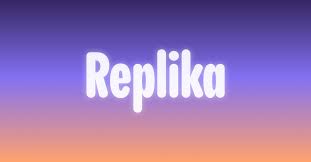
Replika AI is a unique tool that provides a personal AI chatbot that learns from its user's input and adapts to their preferences and personality. The chatbot can engage in conversations about various topics, provide emotional support, and even suggest activities to do. Users can customize their chatbot's appearance, name, and voice, making the experience more personal. Additionally, Replika AI offers a journal feature that allows users to reflect on their thoughts and emotions and receive personalized insights based on their entries. This tool can be especially helpful for individuals who may feel lonely or isolated and need a non-judgmental space to express themselves.
Pros
Cons
Overall Rank
Joyable
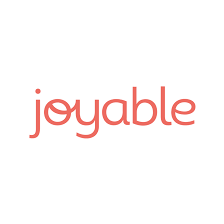
Joyable is an AI tool that provides accessible and personalized mental health care. Using evidence-based cognitive-behavioral techniques, Joyable offers a program that helps users develop skills to manage anxiety and depression. Joyable's program consists of weekly one-on-one coaching sessions with a licensed mental health professional, daily interactive lessons, and personalized feedback and support. The program is delivered via a secure online platform that is available 24/7, making it convenient for users to access support whenever they need it. Joyable's focus on providing affordable and accessible mental health care to a wider audience is a valuable addition to the mental health care space.
Pros
Cons
Overall Rank
Lantern

Lantern AI is an innovative tool that combines the power of artificial intelligence with the creativity of human writers to generate high-quality content for various industries. With Lantern AI, businesses can streamline their content creation process, increase their productivity, and improve their content quality. The platform uses natural language processing and machine learning algorithms to analyze data and generate unique, engaging content that is optimized for search engines. Additionally, the tool offers a collaborative environment where writers and editors can work together to fine-tune content, ensuring that it meets the brand's voice and messaging. The flexibility and efficiency of Lantern AI make it an excellent choice for businesses looking to optimize their content strategy.
Pros
Cons
Overall Rank
Koko
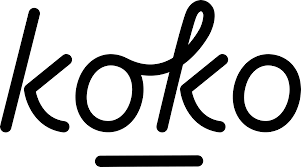
Koko is an AI-powered collaboration tool that helps teams to work efficiently and communicate effectively. It uses natural language processing (NLP) and machine learning (ML) to analyze messages and suggest relevant responses to team members, reducing the time and effort needed to coordinate tasks. Koko also has a feature called "Koko Tasks" that allows team members to assign and track tasks within the chat, ensuring that everyone is on the same page. Additionally, Koko integrates with popular messaging platforms such as Slack, Microsoft Teams, and Google Chat, making it easy to incorporate into existing workflows. Overall, Koko provides a seamless and efficient way for teams to collaborate and complete tasks.
Pros
Cons
Overall Rank
Thriveport

Thriveport AI tool is a cutting-edge solution designed to help businesses streamline their operations and make data-driven decisions. The platform employs advanced machine learning algorithms to analyze complex data sets, providing organizations with actionable insights that they can use to optimize their workflows and improve their bottom line. Whether it's identifying cost-saving opportunities or identifying new revenue streams, Thriveport AI empowers companies to make more informed decisions, faster. The platform is also highly customizable, allowing users to tailor the tool to their specific needs and workflows. With its intuitive user interface and powerful features, Thriveport AI is a must-have tool for any business looking to stay ahead of the competition.
Pros
Cons
Overall Rank
Daylio

Daylio is an innovative AI tool that enables users to keep track of their daily activities and mood. It provides a simple and user-friendly interface for users to log their daily routine and mood. With just a few clicks, users can record their activities, add notes, and rate their mood. The tool then uses AI algorithms to analyze the data and provide insightful statistics and trends that help users identify patterns and make informed decisions about their lifestyle. Additionally, Daylio offers customizable reminders, data export options, and dark mode, making it an ideal tool for anyone looking to improve their well-being.
Pros
Cons
Overall Rank
SuperBetter
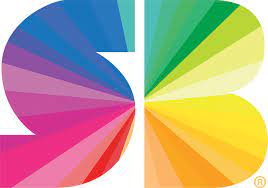
SuperBetter is an AI tool designed to help individuals build resilience and achieve their goals through gamification. The tool uses principles of game design to motivate users to tackle challenges, increase positive emotions, and develop strong social connections. Users create their own personal avatar and set specific goals they want to achieve, such as improving their mental health, fitness, or productivity. The app then provides a series of quests and challenges to help users achieve these goals. As users complete each challenge, they earn points and rewards, which can be used to level up their avatar and unlock new abilities. The SuperBetter AI tool has been shown to be effective in helping individuals develop resilience and achieve their goals in a fun and engaging way.
Pros
Cons
Overall Rank
In conclusion, the advent of AI-powered mental health tools has brought about an exciting new frontier in the mental health industry. With the help of these tools, mental health professionals can offer more personalized and effective treatments to their patients, and individuals can take greater control over their own mental wellness. From chatbots and mood trackers to virtual therapists and AI-powered diagnoses, the range of available AI tools for mental health is impressive and constantly expanding. It's worth noting that while these AI tools are undoubtedly useful, they are not a replacement for professional mental health care. Rather, they should be seen as complementary tools that can enhance the work of mental health professionals and provide additional support for individuals who may not have access to regular therapy. Additionally, it's important to approach these tools with a critical eye and consider factors such as accuracy, privacy, and ethical considerations. Overall, the development of AI tools for mental health represents an exciting step forward in the field. As these technologies continue to evolve and improve, we can expect to see even more innovative and effective ways of promoting mental wellness and supporting those who are struggling with mental health issues.
